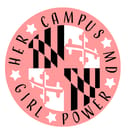“Science, math, and computer science may seem like a man’s world, but they are sorely lacking a woman’s touch.” These words echoed throughout Ritchie Coliseum on Saturday’s rainy morning. The room was full of women about to partake in Technica, an all-women’s hackathon hosted at the University of Maryland and sponsored by a wide variety of companies with an interest in tech.
The event opened with a performance by the Treblemakers, the University of Maryland’s all-female a capella group. Decked out in Maryland gear as an homage to the homecoming festivities that so many women chose to miss in order to hack.
Indeed, Technica was a celebration of women and their talents, in the tech world and beyond. In addition to the Treblemakers who performed, there were women participating in the hackathon from a wide variety of majors with a wide variety of interests.
Dana Rodriguez, a sophomore finance major, participated in Technica as a first-time hacker. Even many of the organizers were not traditional hackers. Meredith Lightstone, the outreach coordinator for Technica, is a government and politics major at the University of Maryland.
Poupak Afshar, CEO of a small tech company, graduate of UMD, and keynote speaker at Technica, discussed the value of women from a non-STEM background entering the field, sharing stories about her original plan to be a lawyer.
One of Afshar’s other major points was that one of the main reasons that women do not pursue STEM fields of study in the first place was the toys they played with as children.
After Afshar’s speech energized the crowd, the hacking began.
Teams were formed both prior to the tournament and during the hackathon itself. One woman stood in the middle of the hackathon space, holding a sign, looking for those interested in consent culture to join her team.
Other teams traveled from all over the East Coast – from Boston to Atlanta – to compete and earn their schools points in the Major League of Hacking.
About 1000 women registered in this hackathon, representing schools like Sweet Briar, an all-girls liberal arts college and even high schools, like Richard Montgomery High School in Rockville, Md.
About half of these women registered were participating in a hackathon for the very first time.
In order to support all the participants, numerous workshops were held throughout the day, ranging from teaching women how to code and use certain technologies to yoga.
One of the participants, Riddhi Gopal, a sophomore bioengineering major, entered Technica knowing “like, zero about computers.” She had “always wanted an opportunity to learn more programming skills and get me motivated to learn about computer science in general,” Gopal said.
As a result, Gopal spent a great deal of the hackathon just attending workshops and doing some of Booz Allen’s Python challenges. (In the case where you read this and wonder why there’s a huge snake at a hackathon, Python is a coding language like HTML or Javascript. No snakes involved.)
While there were certainly groups that created actual projects and won prizes, ultimately Technica was a celebration. It celebrated women and all their talents and skills. It brought women together in a shared space, and with a goal like that, how could there be any losers?

